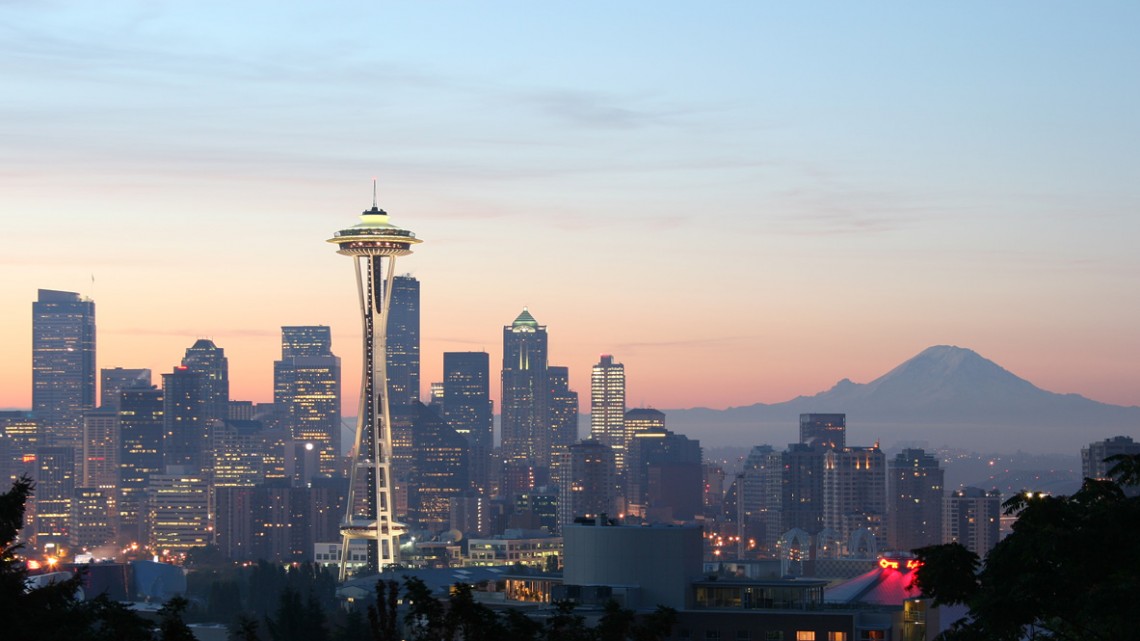Seattle’s $15 Min. Wage Is Making Something Happen That City Leaders Never Expected
Early indicators suggest the $15 minimum wage will not be as positive as City Hall intended.
In a few weeks, Seattle’s new, highest in the country, $15 per hour minimum wage will go into effect. Like many liberal policies, it was passed by City Hall with the best of intentions. The only problem is, in the end, it may do more harm than good for many.
Private businesses, unlike government entities (which, in theory, can always raise taxes or borrow), must make more than they spend in order to pay the rent, make payroll, keep the lights on, pay their business taxes, and, heaven forbid, have some left over for the owners and investors who are taking the risk and putting in the long hours.
Earlier this month, Seattle Magazine asked, Why Are So Many Seattle Restaurants Closing Lately?:
Last month—and particularly last week— Seattle foodies were downcast as the blows kept coming: Queen Anne’s Grub closed February 15. Pioneer Square’s Little Uncle shut down February 25. Shanik’s Meeru Dhalwala announced that it will close March 21. Renée Erickson’s Boat Street Café will shutter May 30 after 17 years with her at the helm…What the #*%&$* is going on? A variety of things, probably—and a good chance there is more change to come.
The magazine went on to report that one “major factor affecting restaurant futures in our city is the impending minimum wage hike.” Anthony Anton, president and CEO of Washington Restaurant Association, told the magazine, “It’s not a political problem; it’s a math problem.” He estimates that restaurants usually have a budget breakdown of about 36 percent for labor, 30 percent for food costs, and 30 percent to cover other operational costs. That leaves 4 percent for a profit margin. When labor costs shoot up to say 42 percent, something has to give.
Restaurants can take actions to adjust, such as raise their prices, acquire cheaper ingredients, and cut their operating hours and labor force. However, all those actions generate reactions from the public which can still lead to lower revenues for the restaurant and, for some, the decision to close their doors.
The Washington Policy Center explains:
When prices rise consumers seek alternatives, a behavior economists call the “substitution effect,” which results in lower demand for the higher-priced product. In the case of restaurants, consumers have access to the ultimate substitution – they can stay home.
A spokesman for the Washington Restaurant Association told the Washington Policy Center, “Every [restaurant] operator I’m talking to is in panic mode, trying to figure out what the new world will look like.”
Seattle had a foretaste of the effect of the $15 minimum wage earlier this year when Prop 1, which made a $15 minimum wage for those working in parking garages and hotels near Seattle-Tacoma International Airport, took effect. A reporter asked a cleaning woman and a part-time banquet server, who work in a hotel near SEATAC, what they thought of the new law:
The cleaning woman responded, “It sounds good, but it’s not good,”“Why?” I asked.“I lost my 401k, health insurance, paid holiday, and vacation,” she responded. “No more free food,” she added.The hotel used to feed her. Now, she has to bring her own food. Also, no overtime, she said. She used to work extra hours and received overtime pay.“What else?” I asked.“I have to pay for parking,” she said.I then asked the part-time waitress, who was part of the catering staff.“Yes, I’ve got $15 an hour, but all my tips are now much less,” she said. Before the new wage law was implemented, her hourly wage was $7. But her tips added to more than $15 an hour. Yes, she used to receive free food and parking. Now, she has to bring her own food and pay for parking.
As the April 1 deadline approaches, the residents of Seattle will have a front row seat to the effects of the $15 per hour minimum wage, but early indicators suggest it will not be as positive as City Hall intended.

No comments:
Post a Comment
Thanks for commenting. Your comments are needed for helping to improve the discussion.